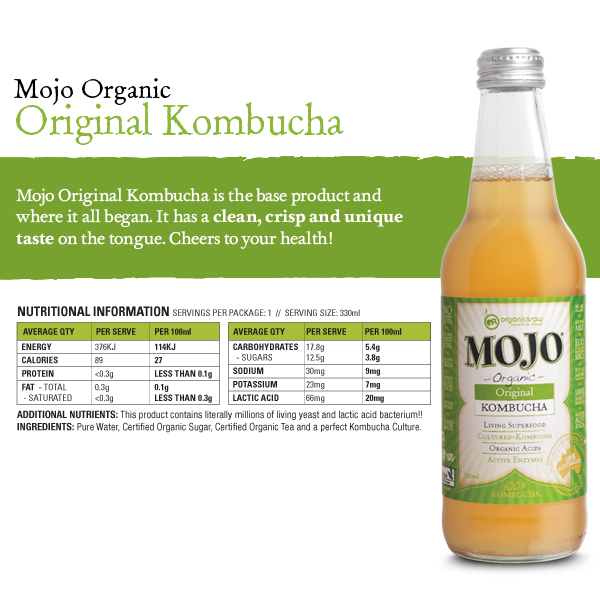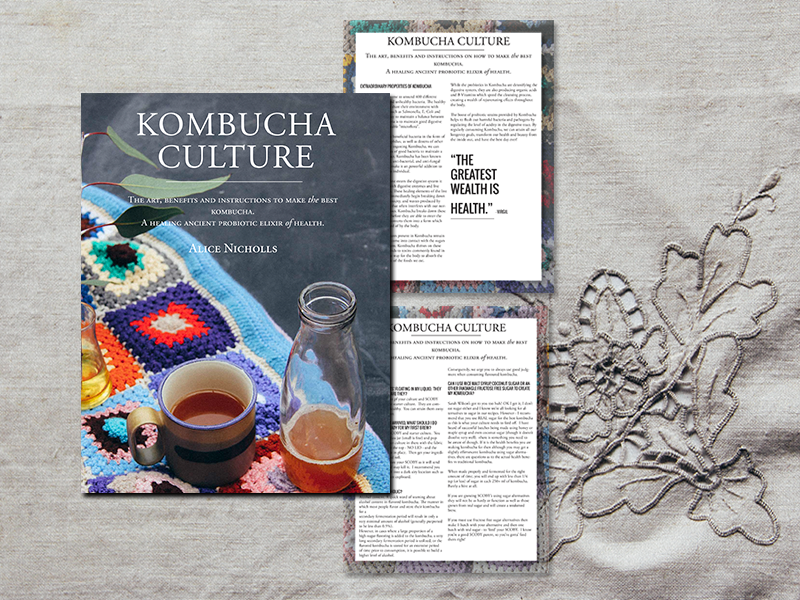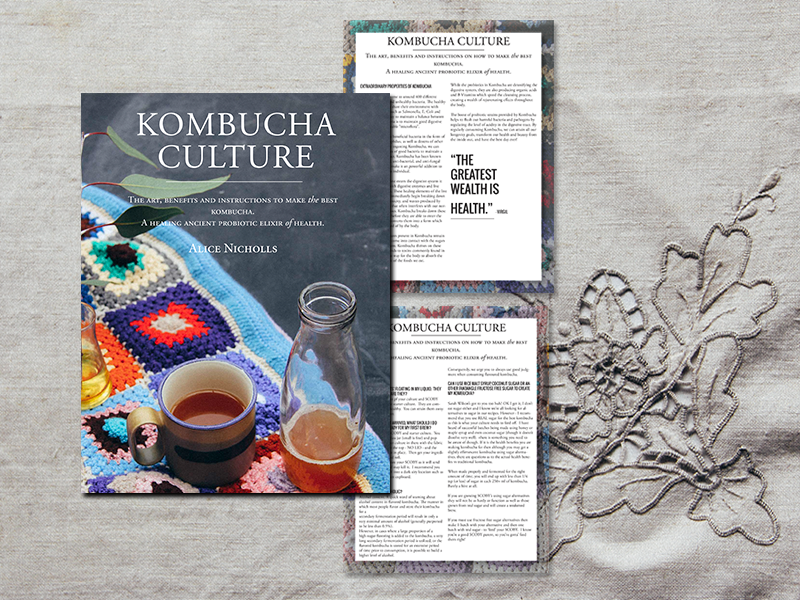Unless you have been hiding under a rock or merely avoiding health food stores, you will be all too familiar with the new buzz drink in town, Kombucha tea. Hailed for its apparent high nutritive value and medicinal properties, Kombucha is quickly becoming the go to health elixir for the health food, juice and detox devotees. But what is it? And do the health claims stack up?
Holly started her career in Psychology, acquiring two degrees in this field before pursuing her love of all things food and health. Having recently finalised a Masters of Human Nutrition, she is in the process of finishing (two subjects to go!) a Graduate Certificate of Public Health Nutrition, before excitedly becoming study free for the first time in a long time! Holly loves to cook and style healthy food as evidenced by her daily instagam pics. Through her blog, Nutritious N Delicious Eats. Follow Holly on Instagram @nutritious_n_delicious_eats and @ Twitter @ NutrishANDelish.
What is Kombucha?
Kombucha is a fizzy, slightly sweet and acidic fermented tea with taste comparisons to apple cider. It is thought to have originated in second-century China, before finding its way across the world in more recent years. Kombucha is made by fermenting sweetened black tea with a flat, pancake-like culture of yeasts and bacteria called the “Kombucha mushroom”. Though not actually a mushroom, the culture gets its name because of the shape and color of the slimy sac that forms on top of the tea after it ferments. The specific culture used in Kombucha tea varies, but consists of several species of yeast and bacteria or Scoby (symbiotic colony of bacteria and yeast).
Image: The Whole Daily – Make Your Own Kombucha Kit
What are the health claims?
Proponents of this “fountain of youth elixir” believe the fizzy drop can cure a wide range of conditions including insomnia, intestinal disorders, arthritis, chronic fatigue syndrome, multiple sclerosis, AIDS, cancer and even baldness!! Others point to its immune boosting and aging reversing properties.
There are certainly some beneficial compounds in kombucha including antioxidants, B vitamins, and bacteria and yeast, which may assist with promoting a healthy balance of gut flora. The beverage is typically low in sugar and although having trace elements of alcohol, is seen as a natural, food-based probiotic useful for restoring and maintaining a healthy gut.
Does the evidence stack up?
A quick review of the available literature quickly yields conflicting messages ranging from kombucha as “the ultimate health drink” to the more damning conclusions of “unsafe medicinal tea”. Many of kombucha’s health claims are attributed to its antioxidant activity. Proponents point to peer reviewed academic studies which found that the fermentation process of Kombucha produced potent antioxidants, which reduced liver damage in rats (1, 2). Although kombucha is rich in antioxidants, containing more antioxidants than other teas, at present there is not enough evidence to compare it against other standards like green tea catechins and vitamin C.
Kombucha is also commonly praised for its beneficial influence on the digestive system, with proponents asserting that kombucha intake regulates gastric functions and has the ability to inhibit progression of gastric ulcers. While a recent study certainly found kombucha to be more effective than black tea at healing stomach ulcerations, it was conducted on mice and these findings have not been replicated in humans. Certainly, the protective effects of kombucha tea may well be as good as those of black tea, but at this point the evidence is lacking.
Anticancer properties of kombucha tea are attributed to the presence of tea polyphenols and their degradation products formed during fermentation. Kombucha proponents point to a popular Russian study from 1951, which found a correlation between the daily consumption of kombucha with an extremely high resistance to cancer (3, 4). Clinical trials in humans are necessary to see if this finding is replicated.
Although many personal experiences and testimonials of Kombucha drinkers are available throughout the world, it’s apparent that scientific evidence on kombucha’s benefits for humans is lacking (6, 7). Cell and animal studies indicate that it may have some beneficial antioxidant properties (7), but there’s no proof to back many of the popular claims at this stage . Even if a cell study shows antioxidant potential, it we cannot assume that these benefits translate to humans. While certainly intriguing, I think it’s a case of watch this space. Kombucha may very well turn out to possess some health-promoting activities, but there just isn’t enough evidence at the moment to support the health claims.
 Are there any health concerns?
Are there any health concerns?
While there have been two reported deaths associated with the consumption of homemade kombucha, the U.S. Food and Drug Administration have reported that it is safe for human consumption. However, since cultures and preparation methods vary (especially for home-made batches) Kombucha tea may contain contaminants such as moulds and fungi. To err on the side of caution, purchase your kombucha from trustworthy producers, or if you’re brewing at home, ensure you’re doing so in sanitary conditions to minimise cross-contamination.
So should we sip it or ditch it?
Given the rising popularity of kombucha, research demonstrating its beneficial effects will most likely continue to increase substantially in the next few years, however given the current lack of evidence and its boutique price (a 750 ml bottle will set you back about $8!), I would be relying on fermented foods already supported by science for now.
Editor’s comment:
Thanks Holly for such a fantastic post. And thanks lovely readers for a little patience over the next few weeks as our post schedule may be a little slower. We are cooking up something new and exciting for Scoop Nutrition and it’s dragging us away from the press office. Are you intrigued? All will be revealed very soon! So tell me? Are you a kombucha lover? Have you tried it? Do you make it?





